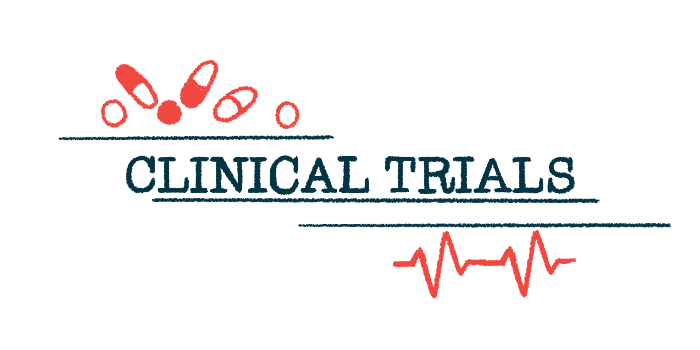ALS treatment Relyvrio fails trial, may be withdrawn from market
Approved therapy does not work to slow disease progression, new data show

Relyvrio (sodium phenylbutyrate and taurursodiol), an approved treatment for people with amyotrophic lateral sclerosis (ALS), has failed to meet its primary goal of slowing disease progression in an ongoing Phase 3 clinical trial designed to confirm its effectiveness.
That’s according to new data from the trial, dubbed PHOENIX, released today by the therapy’s developer, Amylyx Pharmaceuticals.
Essentially, the data show that patients who received Relyvrio in addition to their standard ALS medications in PHOENIX experienced a similar rate of disease progression as did those given a standard treatment alone.
Based on the data, Amylyx is voluntarily pausing promotion of Relyvrio, and said it will work with regulatory authorities and the broader ALS community to determine the appropriate next steps for the therapy — which may include voluntarily withdrawing it from the market, according to a company press release.
Until then, the therapy will remain available to ALS patients in the U.S. and in Canada, where it’s marketed under the brand name Albrioza. The company also will continue running its support programs to help patients on the medication, formerly known as AMX0035 for ALS, which has been approved since 2022 in both countries.
Over the next eight weeks, our team will continue to engage with regulatory authorities and the ALS community to discuss the results from PHOENIX.
Justin Klee and Joshua Cohen, co-CEOs of Amylyx, said they were “surprised and deeply disappointed by the PHOENIX results.”
“Our main priority at the moment is sharing the information with people living with ALS and their treating physicians; this is part of our continued commitment to them and our mission. Over the next eight weeks, our team will continue to engage with regulatory authorities and the ALS community to discuss the results from PHOENIX,” Klee and Cohen said.
The CEOs said their discussions with regulators will be informed by “two key principles: doing what is right for people living with ALS, informed by regulatory authorities and the ALS community, and by what the science tells us.”
Regulators in Europe had recommended against therapy’s approval
Relyvrio was approved in the U.S. and Canada based mainly on data from a Phase 2 study called CENTAUR (NCT03127514). It tested the therapy against a placebo in 137 adults with recently-diagnosed, rapidly progressing ALS.
The results showed that, after six months, patients given Relyvrio had significantly less decline in physical function than those on a placebo, as measured by scores on the ALS Functional Rating Scale-Revised (ALSFRS-R).
Data from the Phase 2 study even hinted Relyvrio might extend survival for ALS patients. The robustness of the results were questioned, however, with authorities in Europe recommending against approval based on data from the Phase 2 study alone.
The Phase 3 PHOENIX trial (NCT05021536) was launched with the hope of definitively confirming that Relyvrio was effective as an ALS treatment. The study enrolled 664 people with early ALS who were randomly assigned to take Relyvrio or a placebo for about one year.
Because the Phase 3 trial included more patients and followed them for a longer period of time, it was expected that the results would be statistically more robust than in the smaller, shorter Phase 2 study.
The main goal of the PHOENIX trial was to show that patients given Relyvrio had less decline in ALSFRS-R scores, just as was seen in the Phase 2 CENTAUR study. However, the results showed that the Phase 3 trial failed to meet this goal: Rates of ALSFRS-R decline were not significantly different for patients given the therapy or the placebo.
PHOENIX trial tested Relyvrio vs. a placebo in over 650 ALS patients
According to Amylyx, Relyvrio also failed to outperform the placebo across several secondary endpoints, or trial goals, which included patient-reported quality of life, assessments of lung function, and overall survival.
Still, Relyvrio was generally well tolerated in PHOENIX, and no unexpected safety issues were reported in the trial.
Full results from the Phase 3 trial are expected to be presented at an upcoming meeting and published in detail later this year. The company also is continuing to run an extension to the study in which European participants who completed PHOENIX could continue to receive Relyvrio.
The Amylyx CEOs thanked all those who took part in the therapy’s development, regardless of this trial’s outcome.
“On behalf of the entire Amylyx team, we are grateful to the ALS community and for the dedication of trial participants, investigators, and study site teams,” Klee and Cohen said.
“With data collected from 664 participants in PHOENIX, we are certain there will be important learnings that will help inform future ALS research,” they added.
While the next step for Relyvrio in ALS remain to be determined, the therapy will continue to be developed for other neurological disorders. Amylyx also will continue to advance its experimental ALS treatment AMX0114, which targets the calpain-2 protein.
“We are steadfast in our commitment to the ALS community and our mission, including with AMX0035 where it has shown potential in neurodegenerative diseases such as Wolfram syndrome and progressive supranuclear palsy, and with AMX0114, our investigational antisense oligonucleotide targeting calpain-2, in ALS,” Klee and Cohen said.








